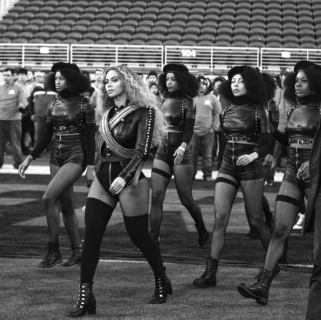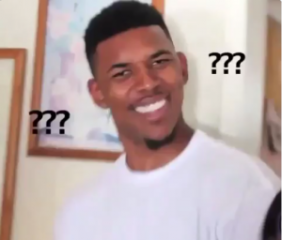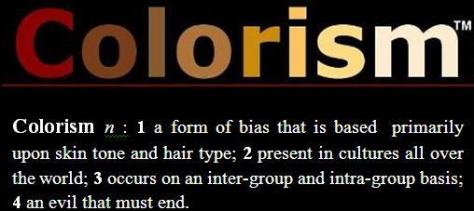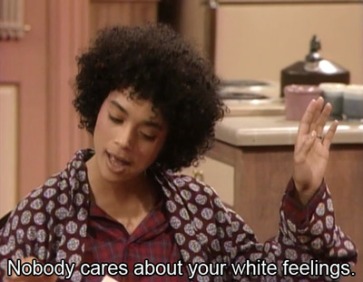I remember when I first began performing spoken word with the poetry collective Black on Black Rhyme. I was introduced by the stage name “Black Girl.” Hisses and heckling greeting me as I graced the stage. “She ain’t black,” darted from the back of the room and hit me in the face like a paper bag of dog shit. I laughed and addressed the echo of our collective self-loathing. I knew exactly what they meant. It was a sentiment I’d heard my entire life.
If (we know that it is) the darker sister’s struggle is that she is not seen as beautiful, the lighter sister’s struggle is that she is not seen as black, by her own people. And then enters Beyoncé, stage left to center.
This past weekend she dropped a single so revolutionarily black (for an artist of her celebrity) that she has E-VER-RY-BODY talking about it. Even those that don’t want to entertain it, write about how much they don’t want to entertain it. Not one white person is able to sing along with this song without looking crazy, but any black person can. We all know and understand what it means to be culturally “mixed” without being racially so. She’s black mixed with black, but we know the difference. Some of us cringed and clutched our pearls, others of us rocked in bold affirmation when we heard her bellow, “My daddy Alabama. Mama Louisiana. You mix that Negro with that Creole, you get Texas ‘Bama.” But, we’ve all claimed to have “Indian” in our family because we wanted to be “special” black and not just regular. And, when there was no evidence of anything other than pure blackness in our melanated skin and the tight coils of our natural hair; when we couldn’t mask it with concealer and flowing weaves; when our perfection of grammar and European languages didn’t erase our broad features; when we realized we could never “pass” and therefore a certain level of privilege within blackness would not be afforded to us, we began to hate….ourselves and anyone (of us) that represented the other end of the color spectrum. This isn’t some universal language song. This is an undeniably, unapologetically black song. It exposes the good, the bad, and the shameful self-loathing.
that don’t want to entertain it, write about how much they don’t want to entertain it. Not one white person is able to sing along with this song without looking crazy, but any black person can. We all know and understand what it means to be culturally “mixed” without being racially so. She’s black mixed with black, but we know the difference. Some of us cringed and clutched our pearls, others of us rocked in bold affirmation when we heard her bellow, “My daddy Alabama. Mama Louisiana. You mix that Negro with that Creole, you get Texas ‘Bama.” But, we’ve all claimed to have “Indian” in our family because we wanted to be “special” black and not just regular. And, when there was no evidence of anything other than pure blackness in our melanated skin and the tight coils of our natural hair; when we couldn’t mask it with concealer and flowing weaves; when our perfection of grammar and European languages didn’t erase our broad features; when we realized we could never “pass” and therefore a certain level of privilege within blackness would not be afforded to us, we began to hate….ourselves and anyone (of us) that represented the other end of the color spectrum. This isn’t some universal language song. This is an undeniably, unapologetically black song. It exposes the good, the bad, and the shameful self-loathing.
 She did this the first weekend in Black History Month. She did this on an international stage Super Bowl weekend. She did this with an army of black women in afros. She did this in the state that houses Oakland. She did this with black berets and Black Power fists plunging in the air. She did this without any men in her squad (to correct the ails of the misogyny within the Black Panther Movement.) She did this in an “X” Formation. She did this for every person from NOLA that was called a “refugee” in their native land. She did this while referencing Katrina, hot sauce, the Jacksons and their original noses, how we grind, black lives, systemic genocide, our non-monolithic subcultures and her “baby hair in baby hair and afros.” For the power of the impact alone regardless of how we feel about the music sonically and lyrically, we should collectively be proud. And, yet, the internal struggle is real.
She did this the first weekend in Black History Month. She did this on an international stage Super Bowl weekend. She did this with an army of black women in afros. She did this in the state that houses Oakland. She did this with black berets and Black Power fists plunging in the air. She did this without any men in her squad (to correct the ails of the misogyny within the Black Panther Movement.) She did this in an “X” Formation. She did this for every person from NOLA that was called a “refugee” in their native land. She did this while referencing Katrina, hot sauce, the Jacksons and their original noses, how we grind, black lives, systemic genocide, our non-monolithic subcultures and her “baby hair in baby hair and afros.” For the power of the impact alone regardless of how we feel about the music sonically and lyrically, we should collectively be proud. And, yet, the internal struggle is real.
I’ve seen the comments repeatedly that she’s self-serving and that her lyrics are just about her. But, what black woman song isn’t? Cue I’m Every Woman . Yet, we still all relate. I’ve heard that she and the song lack substance; as if every song we’ve ever rocked to was the Black Revolution Manifesto. I’ve heard that she’s opportunistic and capitalizing on this vital time in black uprising. When wasn’t it a vital time? I’ve heard critiques of the song’s usage of stereotypes, but I fully embrace stereotypes that are true and rooted in our culture. There is no negative connotation to carrying hot sauce in your bag, taking your man to Red Lobster or making him tacos if he put in work unless, out of shame, you have detached yourself from parts of our black subculture; the parts birthed from poverty. We can’t even adopt the lyrics to her music because we don’t feel connected to her. Her struggle has never been that she wasn’t pretty enough and therefore she cannot fully understand the black girl’s plight. Her struggle has never been that she wasn’t popular enough,or loved enough, or accepted (we assume.) Whatever struggles she may have faced pale in comparison and therefore, her music, her lyrics, her voice is self-serving because she cannot possibly associate herself with the core trials of black womanhood. Damn! We have some healing to do.
I’ve heard critiques of the song’s usage of stereotypes, but I fully embrace stereotypes that are true and rooted in our culture. There is no negative connotation to carrying hot sauce in your bag, taking your man to Red Lobster or making him tacos if he put in work unless, out of shame, you have detached yourself from parts of our black subculture; the parts birthed from poverty. We can’t even adopt the lyrics to her music because we don’t feel connected to her. Her struggle has never been that she wasn’t pretty enough and therefore she cannot fully understand the black girl’s plight. Her struggle has never been that she wasn’t popular enough,or loved enough, or accepted (we assume.) Whatever struggles she may have faced pale in comparison and therefore, her music, her lyrics, her voice is self-serving because she cannot possibly associate herself with the core trials of black womanhood. Damn! We have some healing to do.
We aren’t even conscious of this internal struggle and that this is the source for many of the palpable disdain for her; not just her music, her. Colorism is visceral. It’s intrinsic for black people, especially in regards to black women. The well read of us understand that this is rooted in the division intentionally perpetuated through centuries of chattel slavery and forced miscegenation, but we own it anyway. We rally behind it with banners that read “Team Light-Skin” vs. “Team Dark-Skin.” It’s cancerous to the core. It is the vile excrement and pus of the layered wounds of an earthed history cloaked in colonialism. 
When I see black women divisive on this issue, I find it easier to be a vocal advocate for my darker-hued sisters because I too have been considered “privileged.” Erykah Badu can do no wrong. She’s the safe color. Her hair is just kinky enough to be black, but just soft and textured enough to be considered “good.” Mary J. Blige is safe. She can rock platinum blonde hair for her entire career and never be questioned about her identity struggles. Her music has always been undeniably black. She has so many black girl anthems in her catalog that we each feel she has read our personal journals and put our business in the streets. But, the others, the Janell Monaes and India Aries aren’t getting all of their just due praise. And, I call all of my lighter-hued sisters to the carpet about it. I can because I share ALL of their struggles. They can hear me.
It is undeniable that darker women have been marginalized and that their beauty has been overlooked. We, as black women of every shade, can stand in solidarity on that fact. We watched the documentary “Dark Girls” in horror and stood together against colorism, even though I was literally and figuratively given the side-eye because I just couldn’t possibly understand. However, I feel less supported by and less empowered to check my darker sisters on the visceral disdain for any black woman that doesn’t pass their paper bag test because they aren’t dark enough. Yes, it cuts both ways.  The hatred of darker black women against lighter black women for that sole reason is dismissed and denied. It’s lumped in the same box with “white tears.” To offer such an accusation is internalized as insulting and demeaning immediately; the mirror is never held. No one wants to accept or hear these truths because to allow lightness (which we equate with whiteness) to play the victim in any way usurps the power of victimization from our darker sisters who’ve been denied so much already. When our refusal to recognize it in ourselves is presented in our defensiveness and justification for our feelings, I bow out.
The hatred of darker black women against lighter black women for that sole reason is dismissed and denied. It’s lumped in the same box with “white tears.” To offer such an accusation is internalized as insulting and demeaning immediately; the mirror is never held. No one wants to accept or hear these truths because to allow lightness (which we equate with whiteness) to play the victim in any way usurps the power of victimization from our darker sisters who’ve been denied so much already. When our refusal to recognize it in ourselves is presented in our defensiveness and justification for our feelings, I bow out.
I was talking to a girlfriend last night, a sister who shares a lighter complexion and a rational love for Beyoncé and black women in general. I was confirmed in what I was feeling. I shared with her a reluctance to recognize the reaction to Beyoncé because I feared putting a name to it. Though it was cellularly familiar, I didn’t want to make the bold accusation that we, as black women, still hate ourselves and therefore cannot fully embrace each other as a reflection of ourselves. “You know what you’re feeling as a thirty-five-year-old light-skinned black woman. I know it too.” I was feeling the discourse and challenge of my own blackness, just as I did on that stage years ago. I was feeling even more connected to Beyoncé in a way that I didn’t want to share. Beyoncé didn’t just have the nerve to be light. She had the audacity to come from a middle-class, two-parent household and be able to sing and dance as the leader of a black girl group where she was by far the lightest. How dare she?! 
But, I saw an uprising when Faux News came for her. Nobody can talk about us, but us. That’s code. It is not until she is attacked by whites for her blackness that we will rally around her and collectively support her. A black woman is not a black woman unless she has scars.
The black women who have healed are obvious. It’s not just her fans, because there are those of us who are her fans because she’s light. No, they have not healed. There are those who dismiss her as an artist completely and overanalyze every single step she makes. “She did this too late, too quietly, too loudly, too….white.” They are those who look at her with the expression one makes when they walk in a house of someone cleaning chitlin’s. No, they have not healed. There are those who share her hue but who have denounced their “light privilege” and therefore hate her for benefitting from it. No, they have not healed. There are those who will only come to her defense when the attacks against her can clearly be defined as racially motivated and spirited with hate towards our collective. Then, they’ll jump to her/our aid. No, they have not healed. It is those who love her just as they love every other black girl using her voice; not necessarily all of her music or decisions, but the woman that she is and is becoming because they see her as a reflection of us all. They are the ones who have healed in this way, because be certain, we are all still wounded.
We believe that if you’re of a darker hue, you’re black and could be “pretty for a dark girl.” If you’re of a lighter hue, you’re beautiful, but “not black enough.” Our darker and lighter sisters feel the sentiments, “I hate you because you’re seen as beautiful,” and “I hate you because you’re seen as black,” respectively. We divide our blackness and beauty while failing to realize the two are synonymous.
Nina Simone is praised for her boldness in creating music that edified our people, our struggles, our resilience, our inevitable rise. She was unapologetically black and beautiful, though the latter was often overlooked. She did not have crossover appeal in the states because of her black brilliance and skin. We see Beyoncé draped in mass appeal and we challenge her allegiance to us. If white folks embrace her, then she must not really be for us we think. But, she is undeniably beautiful and black.
Beyonce is ours.

I’ve seen so much about the colorism aspect, but I feel ppl aren’t recognizing that the phenotypical traits she admires most about her beloved and her child are the “blackest features”. She gave full praise of the hair and nose which identifies blackness. She surrounded herself with the brown and black girls, I believe, in utmost praise of the full spectrum of blackness. There are a lot of divise comments about her being self serving as it relates to her weave and skin tone but I disagree. I love this article!! The inclusion matters, there has always been a full spectrum of color in blackness and all of them count.
LikeLike
“The inclusion matters, there has always been a full spectrum of color in blackness and all of them count.” Yes!!!! Thank you so much for taking the time to read it and share your thoughts, which I share.
LikeLike
How is it that your words transcend boundaries? How is it that even when you aren’t speaking to me, I feel like you remind me to love and accept myself? How is it that when you speak that I’m reminded that the negative I see in myself is the result of other’s projections?
I see all over the place the efforts to dehumanize, from every point of view. It’s such a part of society that it’s become second nature to so many. And I don’t ever feel that your words dehumanize anyone. You merely want to encourage people who are discouraged. And your reach extends beyond what you can imagine. Thank you for remaining a bright light when humanity seems to have forgotten itself.
LikeLike
Thank you for being so open to seeing and understanding perspectives other than your own. That is the power we all have should we choose to use it. I’m so inspired by you and your love for humanity.
LikeLike
***Sorry for this long, possibly unfocused, post…..☺***
This was interesting for me to read. For years, my mother detested light skinned women in a way that I could not understand, but when she explained how she was taunted (because of her skin, but not necessarily by light skinned women), I understood her. She would always say that ‘they’, lighter skinned women, don’t understand her plight.
As a child, I leaned on my father’s light skin to reinforce my own dark beauty. It’s a shame when a girl has to say “Look at my daddy he got good hair”.
As I got older, I realized that my mother was hated by my father’s family and my great grandfather who loved and adored me to pieces (I was his twin) only married and/or dated light skinned women, even though I was more than loved and considered a princess. Shade was never mentioned by him, we were all black as far as our conversations.
I watched as my ‘best’ friend, who by chance was light, for years get all of the attention because she was ‘beautiful’. Or ignore her when she said “Dark people are ugly, when I was little I was afraid of them, but I’m not talking about you”.
My late high school years, I found myself and realized that beauty meant confidence and once I had it, no one could take it from me. I no longer cared what others thought because I realized that I owned the pen that wrote my script.
Then, I heard ” you’re cute to be dark skinned, I don’t like dark women, but you…..You are sexy chocolate” and all of those comments were CHECKED because they weren’t complimented.
During my university years is also when I met some of my most courageous sisters in the struggle who were light. I realized that they were mocked simply for being of a lighter hue. I finally realized and had real discourse about their struggle. I appreciated it. I now could understand the difficulty in being considered just cute/pretty, and not intelligent, or thought-provoking. I remember my roommate who was light skinned with long hair being told she was cute, but I was told I was sexy by a group of athletes we hung out with. They explained to her that my intelligence and confidence….and let’s be real….those athletic curves made me an entire package, and she was, well, cute like a doll. She was hurt and it was at that moment I also realized how we allow men to divide us with their foolishness.
Now, I’ve NEVER liked Beyonce. I thought that she used her light skin and those fake blonde tresses to appeal to the white masses. I think her father marketed her that way. But THIS SONG allowed me to realize that I don’t hold the barometer for blackness or consciousness. It helped me to understand that she too, is my sister and until the day she says she hates her blackness, she’s on my team. I now know that HER BLACKNESS is HERS. And I applaud her for letting all of us know that.
We MUST stop with discovering ways to critique each other and we must stop this black rating system. We must allow each other to own our own blackness and understand that we each have a role in this struggle. Beyonce reached folks I could never reach (white folks) and told them who she was unapologetically! I will ALWAYS respect her for that.
LikeLike
The fact that you were so transparent about your transition and evolution through colorism is so powerful. I had the same experiences through the other lens. Thank you so much for SPEAKing here!
LikeLike
Fighting back tears….I say good read! My father was super pro black wearing dashikis and Kufis year round. He was always discussing the plight of the black family in the pulpit, to the Muslim brethren selling newspapers on MLK and anyone else that would listen. I listened! I appreciated my fathers love for our culture and developed a great appreciation for my heritage. I was the lightest one (by far) in my family of five and the only girl (my brother would tell people I was adopted :(). In the 5th grade my mother discussed colorism with me, I didn’t get it then but I listened. It wasn’t until I entered high school that I began to fight for my blackness. I detested being faced with the questions, Are you black? I thought you were Dominican? One of the reasons I went natural (before it became a movement) was to prove I was black enough. Although the benefits outweighed my original agenda, I realized that I no longer needed to prove anything to anybody. I realized my scars and the healing began. I realized I didn’t need proof, I am who I am and that’s ok. I am ok! This discussion topic would make for a beautiful symposium. A catalyst where we can heal together!
LikeLike
Thank you!! I hope this does help heal this wound.
LikeLike
Wow!!! This reawakened some of those scars that I forget I have, because they are on my back, and I cannot see them as clearly as you can – because you stand behind me!
When I saw the video – I was so excited! I read commentaries and critiques and watched it about 8 times Saturday night…I loved the symbolism, the unapologetically blackness in the song…the reminder that the best revenge is your success (Beyonce said it was her paper). I was grateful that this sister, that with her husband makes $1M per day, made a stand. I was proud!
Then on Sunday, when I realized she was doing the song, I rose to my feet, and shouted with excitement. I was excited about the costumes, the hair of her dancers, her strategic nod to the 50th Anniversary of the founding of the BPP and Malcolm X, and again, her being Unapologetically Black!
At no time did I think of her color – I just saw my sister. And then here comes black “newly- conscious america” attacking her. I felt like I needed to defend my sister. I felt the need to stand in front of her and protect her. Maybe my credentials of being the daughter, god-daughter, and niece of Panthers could protect her. Or maybe my close family ties with Kwame Ture (formerly Stokley Carmichael) and The NOI could shield her…and one comment I made, was responded with a laughing Snoopy…and I was hurt.
I showed my Mom, a Queen and continued activist, and she had me explain all of what I saw, because for her, all of the symbolism was not clear. She had me read to her comments on FB from the community (positive and negative), as well as comments from elected officials in New York. She did not comment on the video, or Super Bowl half time, she just told my sons: “Your mommy can see what others cannot, and she will help lead us out of darkness. Protect her, as the fight will come from those around her that she wants to help, and those outside of her that she wants to fight against.” Tears were in my eyes, because I then knew that what Beyonce experienced, was going to be my story, too.
She then asked me if Beyonce’s hair was naturally blonde, and why did she keep it that way. I told her that I did not know, but I wonder how easily it is to recognize her because of it…it is a trademark of sorts, and I reminded my Mom of the deeply melanated people of the South Pacific that have blonde hair…
Now maybe Beyonce is easier for mainstream media because of her lighter skin and blonde hair than India Aire’s deep chocolate complexion. But I look at it this way, Beyonce played this Chess Game well. She made it to the top, and presented America with the face they fear as her back-up. She has mastered capitalism and is using it to help more than most can even dream. She stood on the world’s stage and said Check Mate!
LikeLike
I keep reading this post over again because it has so many points to which I can relate. Your mother’s words to your sons were so powerful. Your response to the article is powerful. Thank you so much for sharing it.
LikeLike
I personally dont care that much for Beyonce, however I strongly feel that Colorism is everyone’s problem: The conversation about how skin tone affects individuals’ racial biases shouldn’t begin and end with interrogations of beauty standards, nor can it be dismissed as an issue that persists only within non-white racial groups. In my opinion, the implications of Colorism are unclear. However, it is equally important for us to continue educating the black community, especially black women who are most susceptible to the effects of Colorism which include diminished self-esteem, inferiority, and group division!
LikeLike
Yes indeed! SPEAK!
LikeLike
I’ll be bold & say that to many, Beyoncé represents a stereotype. But to little light skin girls & young women who’ve always been taught that best thing they have going for themselves is their brand of pretty, Beyonce’s fullness is an inspiration.
LikeLike
Yes!
LikeLike
i love you. And her. And all of us. #BeyonceisOURS. ❤
LikeLike
You know I love you girl! Thank you!
LikeLike
THIS WAS IMPECCABLY WRITTEN! SPEAK! Truly, I enjoyed every word. As for the color struggle- I’m a dark girl with a mixed mother and I’ve seen and heard the same in HER existence, just being on the sidelines as her daughter. Thank you for this!
LikeLike
Thank you for reading and sharing it! What an insightful perspective you must have!
LikeLike